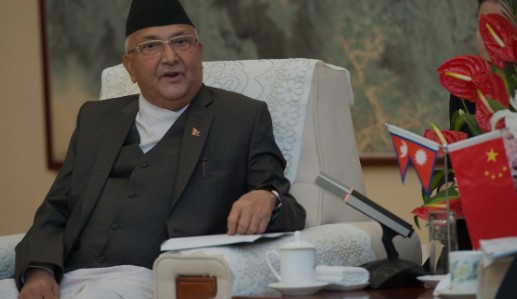After a tumultuous tenure marked by clashes with Bharat, KP Sharma Oli is set to return as Nepal’s Prime Minister for the fourth time. Oli’s comeback follows a strategic alliance with Sher Bahadur Deuba’s Nepali Congress, ousting incumbent PM Pushpa Kamal Dahal after he lost a critical vote of confidence.
Oli, born in Terhathum District in 1952, has a storied political career shaped by early activism and imprisonment for subversive acts. He emerged as a central figure in Nepal’s Communist movement, leading the CPN-UML and advocating for revolutionary change.
Throughout his tenure, Oli has navigated Nepal’s complex political landscape, ascending to power in 2015 and again in 2018, only to face challenges over power centralisation and political instability. His tenure was marked by nationalist rhetoric and strained relations with Bharat, particularly during the 2015 Nepal blockade.
Relations between Bharat and Nepal were strained particularly when Oli claimed that the areas of Lipulekh, Kalapani, and Limpiyadhura were part of the Nepalese territory in 2019, creating a major row with New Delhi to fend off domestic pressure. Nepal’s Upper House of the Parliament unanimously passed the Constitution amendment bill in May 2020 which included the country’s new political map in its national emblem.
Defence Minister Rajnath Singh inaugurated an 80-km-long strategically crucial road connecting the Lipulekh pass with Dharchula in Uttarakhand in May 2020. Nepal reacted sharply to the inauguration of the road claiming that it passed through Nepalese territory. Bharat rejected the claim asserting that the road lies completely within its territory. Bharat has sternly asked Nepal not to resort to any “artificial enlargement” of territorial claims.
Despite these challenges, bilateral exchanges that had stalled due to the bitter boundary dispute were reset in the later part of 2020 with a series of high-level visits, as New Delhi asserted its role as Nepal’s “foremost friend” and development partner. Despite his hardline stance on relations with Bharat, Oli has acknowledged New Delhi as a valuable developmental partner and has vowed to strike a balance in relations with Bharat and China.
As Oli prepares to lead a new “national consensus government,” he aims to balance Nepal’s relations with Bharat and China, emphasising economic prosperity and strategic cooperation. His return could signal a reset in bilateral ties, crucial for both countries’ shared interests and regional stability.
Bharat, Nepal’s foremost developmental partner, will closely watch Oli’s fourth term, hoping for a renewed commitment to friendly relations and economic cooperation. With Nepal’s strategic importance in Bharat’s regional interests, Oli’s leadership will shape future dynamics between the two nations.

















